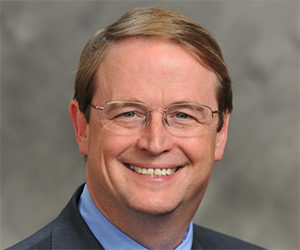 If you’ve ever shouted, “You can’t handle the truth!”, enjoyed characters on television carrying on conversations at the level of the Algonquin Round Table while walking down the hall, or cried when hearing “The streets of heaven are too crowded with angels,” then you have Aaron Sorkin to thank.
If you’ve ever shouted, “You can’t handle the truth!”, enjoyed characters on television carrying on conversations at the level of the Algonquin Round Table while walking down the hall, or cried when hearing “The streets of heaven are too crowded with angels,” then you have Aaron Sorkin to thank.
Sorkin is the author of A Few Good Men, The American President, Sports Night, The Newsroom, The Social Network (for which he won an Academy Award) and 88 episodes of The West Wing. With so much writing to his credit, it’s not surprising that on occasion he repeats himself. When asked about this tendency to reuse certain phrases, Sorkin responded, “The explanation is exactly what you think. I have both a limited imagination and a bad memory.”
That may be why Sorkin looks for challenges outside his comfort zone. When he was asked to reimagine To Kill a Mockingbird for the Broadway stage, some were concerned, but Boo Radley has no long speeches, and Atticus Finch does not tell Calpurnia, “Don’t be ridiculous. Everyone likes me.”
Sorkin is always thinking about what to write next. I think it’s time for him to tackle older classic literature, like Jesus’ “Parable of the Prodigal Son.” I’ve taken it upon myself to offer a rough draft to get him started. If anyone who knows Mr. Sorkin feels compelled to send him my humble suggestion that would be great.
A rich man has two sons who should wait for the money, but the younger one thinks, “I don’t have that kind of time, Boo Boo.”
If you haven’t seen this kid play his father, then you haven’t seen Shakespeare the way it was meant to be played.
The father is not sure what to do, but a famous monk once said, “I don’t always know what the right thing to do is, my Lord, but I think that the fact that I want to please you, pleases you.”
The father gives him the inheritance, and the prodigal thinks, “I’m really quite something. I could buy the biggest house in town and turn it into my ping-pong room.”
He packs his bags and leaves for a distant country, where he wastes the money. His situation will get worse before it gets better.
The farmer who offers him a terrible, entry-level position explains, “This work is hot and sweaty.”
The prodigal replies, “Much like myself.”
He takes the job feeding pigs, even as he says, “I’m Jewish and this job is … incredibly not.”
As if it matters how a man falls down. When the fall is all that’s left, it matters very much.
Each day he says, “I’m like Tippi Hedren around here,” which makes no sense to 99 percent of those who hear it. He feels horrible, like his legs don’t go all the way to the ground. He gets so hungry he wants to eat the corncobs. That’s the cost of doing business.
He decides to go home, though he doesn’t know how his father will respond. It’s six-to-five, and pick ’em. He’s afraid his father will say, “I hate your breathing guts,” but this sideshow is over.
When he finally gets home, his father hugs him. When the son starts to apologize, the old man says, “The only thing that you have to do to make me happy is come home at the end of the day. Let us drink from the keg of glory. Bring the finest muffins and bagels in all the land. Eat ’em up.”
“Dad, everyone is mad at me.”
“Son, I’m not other people.”
“But what are the neighbors going to say?”
“Answer them. Don’t answer them. It’s entirely up to you.”
The older brother, coming home from work, hears the commotion, asks what is going on, and is not pleased with the answer.
He yells at his father, “Not for nothing, but I haven’t exactly been gathering ye rosebuds here! Have you noticed that I don’t act like an adolescent, over-sexed whoremonger? I’m not that guy. This isn’t farm camp. This is real work – and you know it. This is not a proportional response.”
His father asks, “What is the virtue of a proportional response? I want things to be better.”
“Better for who?”
“Whom. I know this has been hard for you.”
“You think?”
“Son, you are always with me. To say nothing of the fact that all that is mine has always been yours. It just seems to me that more and more we’ve come to expect less and less from each other. And I think that should change.”
